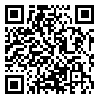Volume 33, Issue 1 (4-2025)
JSSU 2025, 33(1): 8593-8603 |
Back to browse issues page
Download citation:
BibTeX | RIS | EndNote | Medlars | ProCite | Reference Manager | RefWorks
Send citation to:



BibTeX | RIS | EndNote | Medlars | ProCite | Reference Manager | RefWorks
Send citation to:
Laghaei N, HosseinpourDelavar S, Ghahramani M. Effect of Eight Weeks of Interval Training Combined with Curcumin Consumption on Cardiac ERK1/2, PI3k and IL-18 Levels in Rats with Breast Cancer Treated with Doxorubicin. JSSU 2025; 33 (1) :8593-8603
URL: http://jssu.ssu.ac.ir/article-1-6311-en.html
URL: http://jssu.ssu.ac.ir/article-1-6311-en.html
Abstract: (835 Views)
Introduction: Doxorubicin increases oxidative stress and cardiac damage. ERK1/2, PI3k, and IL-18 seem to play an important role in increasing cardiac damage. The aim of the present study was to investigate the effect of eight weeks of interval training with curcumin on ERK1/2, PI3k, and IL-18 in the heart tissue of cancer mice treated with doxorubicin.
Methods: In this experimental study, Fourteen days post-cancer induction, a total of 40 rats aged between 4 to 6 months were divided into 5 distinct groups: cancer control+doxorubicin, cancer control+no drug, cancer+intermittent exercise+doxorubicin, cancer+curcumin+doxorubicin, and cancer+intermittent exercise+curcumin+doxorubicin. Curcumin was administered to two of these groups at a dosage of 100 mg/kg, one hour after training sessions. The high-intensity interval training (HIIT) protocol consisted of six intervals each lasting 3 minutes and 20 seconds at 80%-95% of VO2max, interspersed with 2 minutes of active recovery at 30%-35% of VO2max. Enzyme-Linked Immunosorbent Assay (ELISA) was utilized to examine variables, and the statistical analyses were conducted using SPSS software version 16, applying ANOVA along with Bonferroni post hoc tests.
Results: ERK1/2 was significantly increased in the cancer control + doxorubicin group compared to the cancer control + no drug group (P=0.001). In the interval training + curcumin + doxorubicin group, ERK1/2 was significantly decreased compared to the cancer control + doxorubicin group (P=0.001). PI3K was significantly decreased in the cancer control + doxorubicin group compared to the cancer control + no drug group (P=0.001). PI3K was significantly increased in the interval training + curcumin + doxorubicin group compared to the cancer control + doxorubicin group (P=0.001). IL-18 was significantly increased in the cancer control + doxorubicin group compared to the cancer control + no drug group (P=0.001). In the interval training + curcumin + doxorubicin group, IL-18 was significantly decreased compared to the cancer control + doxorubicin group (P=0.001).
Conclusion: The administration of doxorubicin resulted in elevated levels of ERK1/2 and IL-18 while reducing PI3K in the heart tissue of cancer-affected mice. In contrast, the combination of curcumin administration and exercise reduced ERK1/2 and IL-18 levels while increasing PI3K. While both curcumin and exercise individually showed considerable benefits in enhancing these factors, their combined effect produced even more effective outcomes.
Methods: In this experimental study, Fourteen days post-cancer induction, a total of 40 rats aged between 4 to 6 months were divided into 5 distinct groups: cancer control+doxorubicin, cancer control+no drug, cancer+intermittent exercise+doxorubicin, cancer+curcumin+doxorubicin, and cancer+intermittent exercise+curcumin+doxorubicin. Curcumin was administered to two of these groups at a dosage of 100 mg/kg, one hour after training sessions. The high-intensity interval training (HIIT) protocol consisted of six intervals each lasting 3 minutes and 20 seconds at 80%-95% of VO2max, interspersed with 2 minutes of active recovery at 30%-35% of VO2max. Enzyme-Linked Immunosorbent Assay (ELISA) was utilized to examine variables, and the statistical analyses were conducted using SPSS software version 16, applying ANOVA along with Bonferroni post hoc tests.
Results: ERK1/2 was significantly increased in the cancer control + doxorubicin group compared to the cancer control + no drug group (P=0.001). In the interval training + curcumin + doxorubicin group, ERK1/2 was significantly decreased compared to the cancer control + doxorubicin group (P=0.001). PI3K was significantly decreased in the cancer control + doxorubicin group compared to the cancer control + no drug group (P=0.001). PI3K was significantly increased in the interval training + curcumin + doxorubicin group compared to the cancer control + doxorubicin group (P=0.001). IL-18 was significantly increased in the cancer control + doxorubicin group compared to the cancer control + no drug group (P=0.001). In the interval training + curcumin + doxorubicin group, IL-18 was significantly decreased compared to the cancer control + doxorubicin group (P=0.001).
Conclusion: The administration of doxorubicin resulted in elevated levels of ERK1/2 and IL-18 while reducing PI3K in the heart tissue of cancer-affected mice. In contrast, the combination of curcumin administration and exercise reduced ERK1/2 and IL-18 levels while increasing PI3K. While both curcumin and exercise individually showed considerable benefits in enhancing these factors, their combined effect produced even more effective outcomes.
Type of Study: Original article |
Subject:
Exercise Physiology
Received: 2024/10/22 | Accepted: 2024/12/22 | Published: 2025/04/4
Received: 2024/10/22 | Accepted: 2024/12/22 | Published: 2025/04/4
Send email to the article author
| Rights and permissions | |
 |
This work is licensed under a Creative Commons Attribution-NonCommercial 4.0 International License. |







